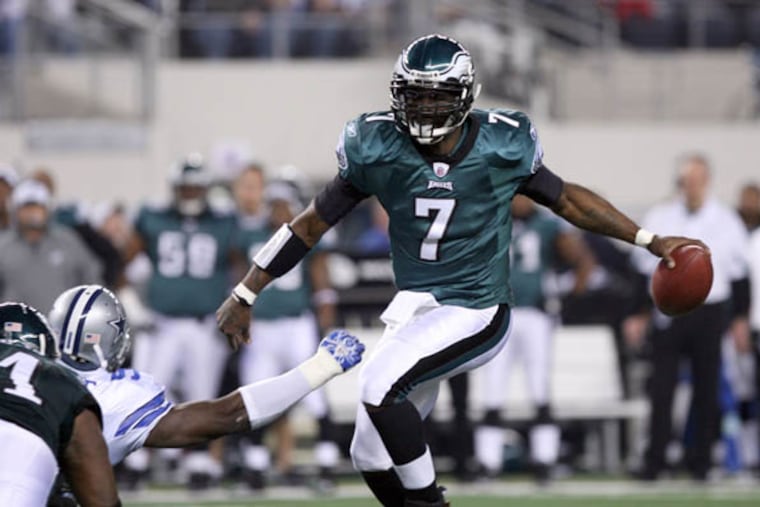Michael Vick discusses his work with More Than a Vote and how Andy Reid believed a younger Vick would have won a Super Bowl in Philly
The quarterback didn't join Eagles until he was 29, and there's a feeling that he and Coach Reid could have done more in Vick's prime.

Michael Vick entered the NFL as the No. 1 pick in the 2001 NFL Draft and took the league by storm with his elusiveness and rocket left arm. Off-the-field troubles halted Vick’s rise, and he eventually played for the Eagles after a 21-month stint in prison.
In 2010, he became the starting quarterback for the Eagles, but it was almost four years after his last snap as a starter. The Eagles made four consecutive NFC Championship games from 2001-04, and the one win was against the Vick-led Falcons. While Vick led the Eagles to a playoff berth in 2010, he said Andy Reid believes they could’ve done bigger things together if it was earlier in his career.
“Andy Reid always told me if he had me when I was younger, I would’ve had a Super Bowl ring,” Vick said. “Not saying that he rather had me over Donovan [McNabb]. He wasn’t saying it like that."
Vick joined Inquirer Live at Lunch to discuss his career, his impact with the organization More Than a Vote, and his job as a Fox NFL studio analyst.
When Vick returned home from prison in 2009, he wasn’t just committed to getting back on the gridiron. He wanted to make changes in his life by being more vocal about his mistakes and helping the younger generation with his experience.
Vick, 40, has partnered with Black athletes and artists to form More Than a Vote to help fight against voter suppression. Others involved include LeBron James and locals from the Philly area like Kyle Lowry, Kevin Hart and Natasha Cloud.
In Vick’s personal journey, he lost his voting rights when he became a convicted felon. He has since regained his rights and now aims to educate people in similar situations.
“I never really understood what it took to get my rights back,” Vick said. “I thought it was over. It was a lot of people like me that felt like they couldn’t [vote] for various reasons. You find out that it’s easy to get your rights restored, and you just got to be proactive in doing it.”
There’s often been a sense that Vick was ahead of his time, and it’s hard to argue that sentiment. Black quarterbacks are having as much success as ever today. Russell Wilson is playing at an MVP level, Patrick Mahomes and Lamar Jackson won the last two MVPs, and others like Kyler Murray, Dak Prescott and Deshaun Watson are playing at Pro Bowl levels.
It’s not just Black quarterbacks, but the dual-threat signal-caller is as prevalent as ever. Bills quarterback Josh Allen rushed for more than 500 yards in his first two seasons, and Joe Burrow’s mobility has saved him from being sacked even more than he already has through three games. One can only imagine how Vick would fit in today’s offenses that are taking advantage of mobile quarterbacks.
“I know if I could do things differently I would play the same style of play that they play," Vick said. “I would slide more, I’d get out of bounds more, I’d keep by my eyes downfield to pass, but that’s the evolution.”
Other projects are on the horizon for Vick, but he now spends a lot of his time on Fox as a studio analyst as a co-host of the FOX NFL Kickoff Show on Sundays at 11 a.m. ET. As someone who was critically critiqued by the media throughout his career, his current job has given him a different perspective.
“I used to view the media a certain way, and now it’s like I am part of the media,” Vick said. “I look at it as me just being real and trying to help guys indirectly from afar without killing them or taking away their confidence."